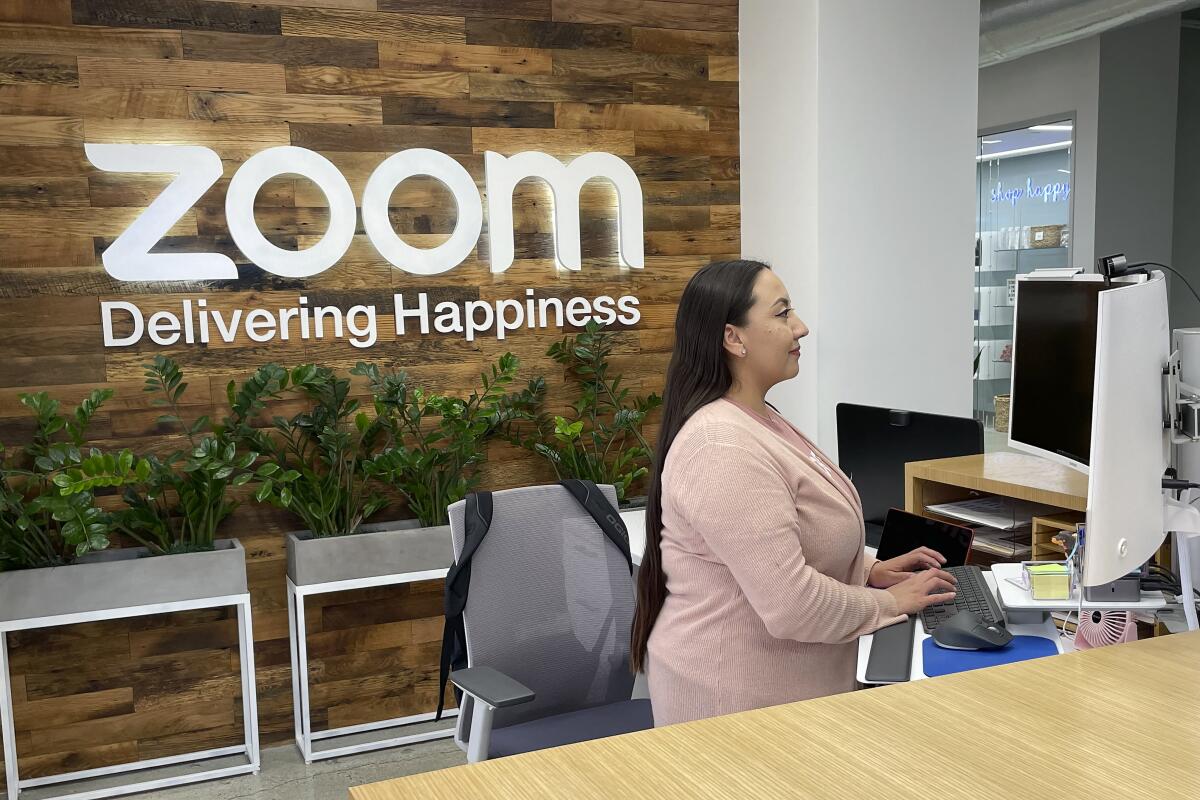Even Zoom is calling employees back to the office

Zoom Video Communications, a one-time darling of the work-from-home era, is calling workers back to the office.
Employees who live near a Zoom location must be on-site two days a week, a company spokesperson said. A “hybrid approach” is most effective for Zoom, she said, because it will be in “a better position to use our own technologies, continue to innovate and support our global customers.”
The company’s eponymous video-conferencing software was a breakout hit of the pandemic as entire industries were forced to communicate virtually. Since then, companies as varied as Amazon.com, Chipotle Mexican Grill and BlackRock have increased the amount of time employees must spend on site.
Still, many offices remain lightly used, and there are signs that some roles may remain remote. Offices in the Northeast were only at peak capacity 24% of the time in the first half of the year, according to data from Basking.io, a workplace-occupancy analytics company. Listings for remote jobs have also trended up in many cities.
Zoom itself has struggled to keep growing in a post-pandemic world. Although its share price quintupled from March to October 2020, the stock has since retreated to pre-pandemic levels. In an effort to resuscitate growth, Zoom is developing a wider suite of software tools for big businesses, including in-office collaboration products. It has invested in startup Anthropic to include artificial intelligence in its software for managing and automating customer service requests.
The back-to-the-office campaign by many employers has run into resistance from workers. They’ve struck a truce of sorts — hybrid work.
Insider earlier reported Zoom’s new office policy.
Although many chief executives want employees back five days a week, “I think the hybrid work is going to stay,” CEO Eric Yuan said during a May earnings call. “I think hybrid work does bring another kind of huge opportunity to us.”
Bloomberg writers Matthew Boyle and Alex Tanzi contributed to this report.
More to Read
Inside the business of entertainment
The Wide Shot brings you news, analysis and insights on everything from streaming wars to production — and what it all means for the future.
You may occasionally receive promotional content from the Los Angeles Times.











